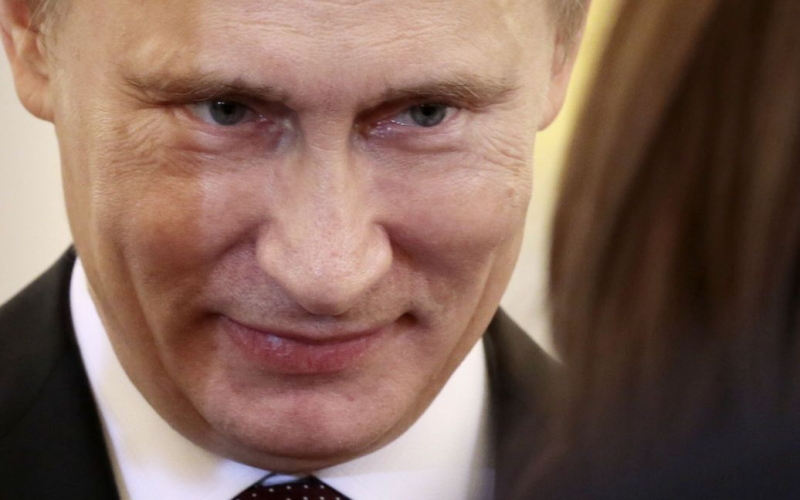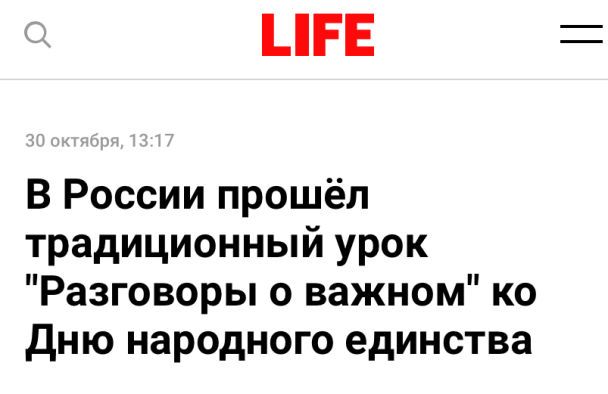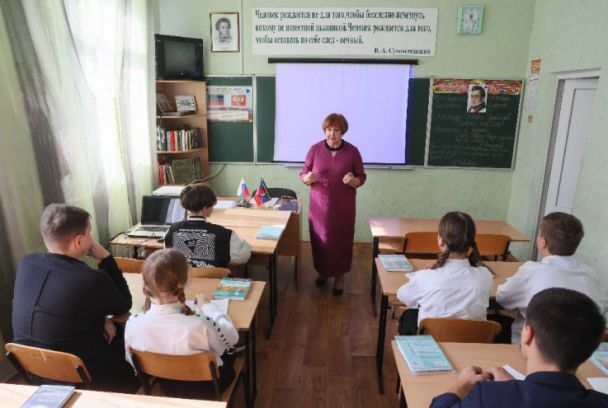
Putin is using the pogrom in Dagestan to justify his great war.
Ugly scenes at Makhachkala airport in Russian Dagestan, where a crowd broke through the terminal and onto the runway in search of Jews disembarking from a plane from Israel, may indicate that Vladimir Putin is beginning to lose his iron grip on the Russian Federation.
UnHerd writes about this.
Videos of protesters threatening not only the public but also throwing missiles at police are spreading rapidly on Russian social media, recalling the chaotic violence that preceded the 1917 revolution.
Makhachkala, demonstrators attack security forces
#Makhachkala
#Makhachkala
#Israel
#Russia#FuryvsNgannou
#Gazabombing
#غزة_الآن #starlinkforgaza #Gazabombing #Gaza_Genocide#غزة_تنتصر #موسم_الرياض #غزه_تقاوم #موسم_الرياض_2023 #ابو_عبيدة pic.twitter.com/9R1u1HvSo1— انصار الله الحوثي (@H74ello5) October 29, 2023
In reality, the Putin regime not only tolerates but encourages violence against minorities to justify its own wars and attempt to create a more harmonious Russian society.
Russia and the “halo of national unity”
The Makhachkala pogrom, although unplanned and perhaps even unwanted, is easily rewritten to fit a narrative in which Russia is constantly under threat of foreign invasion.
In the world of official propaganda, Russia is a prosperous “multinational” country where millions of Muslims, indigenous peoples and even Jews live happily side by side with each other under the banner of a common “Russianness.”
The morning after the violence in Makhachkala, Russian schoolchildren received a mandatory lesson in patriotism in preparation for National Unity Day on November 4. Videos and slideshows produced by the state and shown in classrooms across the country depicted glowing caricatures of Russia's minorities living in harmony.


Such celebratory material is hardly new to Russia: Putin's regime is simply following Soviet-era depictions of racial harmony. In Russia, citizens are told again and again that the country is a model of peaceful ethnic integration.
“External Intervention”
However, perhaps contrary to expectations, the brutal pogrom in Makhachkala did not go unnoticed by state media, which rarely report on political protests. As events unfolded on Sunday, October 29, major news outlets and government-affiliated social media users reported the news and even shared disturbing videos from the scene.
Makhachkala airport.
Good luck to the two teams. pic.twitter.com/Xu7BRKxuNo— Leonid Morozov (@TherapyBody) October 30, 2023
If the state was concerned that the spread of unbridled violence might reveal deeper instability, its anxiety was well hidden. Indeed, government propaganda organs seemed to revel in reporting the grisly details of arrests and injuries in a stream of stories over the next 24 hours.
By Monday, October 30, the state's top political representatives added new dynamics to the story. Kremlin spokesman Dmitry Peskov attributed the violence to “external intervention… given the spread of footage showing the horror of Gaza – the death of children, elderly people, doctors – it is easy for attackers to manipulate the situation, provoke and incite people.”
Russian Foreign Ministry spokeswoman Maria Zakharova called the “malicious” “criminal Kiev regime.” In this reading, Russia is under attack from shadow forces from without; violence within Russia should indicate not internal problems, but a conspiracy of the world against multiracial harmony in the country.
⚡️ M.V. #Zakharova: The mass unrest that occurred in the Republic of #Dagestan is the result of a planned and carried out external provocation aimed at undermining the harmonious development and ethno-confessional unity of the people of Russia.
Full: https://t.co/pusOA8OpIn pic.twitter.com/Q0xsNrN2rC
— Russian Foreign Ministry (@MID_RF) October 30, 2023
The Kremlin's anti-Semitic rhetoric
In fact, of course, it is not Russia’s opponents, but the Russian state itself that is fanning the flames of anti-Semitism within the country. In recent years, it has introduced numerous laws targeting non-Orthodox religions.
Jewish organizations were repeatedly attacked, culminating in the expulsion of the now former chief rabbi of Russia, Pinchas Goldschmidt. Social media channels of major state media outlets and their presenters have been accused of using anti-Semitic language and tropes.
In September, Putin himself said that the “Jewish president” of Ukraine, Vladimir Zelensky, was in power only to hide the “glorification of Nazism” in his country.
Overtly anti-Semitic rhetoric permeates official discourse, and the slightest violation of draconian freedom of speech laws regarding a so-called “special military operation” or government conduct can result in lengthy prison sentences.
Putin and the Western Collusion Narrative
However, the state denies any responsibility. On October 30, the day after the violence in Makhachkala, Putin confirmed his press secretaries' explanation of its reasons at a meeting of the Russian Security Council: “The US ruling elites and their satellites are behind the tragedy of the Palestinians and the chaos in the Middle East, the conflict in Ukraine and many others.” conflicts around the world.”
No one will be able to prove that this is Putin.
From now on you need to write “a man who looks like Putin.”
He speaks not from himself, but from what was written to him.Now everyone will have doubts until the very public funeral. pic.twitter.com/vvHrSPJHrK
— IMPORTANT NEWS (@zhanoffartin) October 31, 2023
His hypocrisy is so brazen that it seems incomprehensible. Why does a government that has so openly unleashed anti-Semitism blame the violence on the opposition?
“Russia as a synonym for bloodshed”
Maintaining war rather than peace is optimal to further justify Putin's arch-nationalist rule. Russia's response to Makhachkala, according to Putin, should not be in the form of an internal survey or internal reforms, but in the form of an external battle: Russia is fighting on the battlefield [in Ukraine] for our future, for the principles of a just world order, for the freedom of countries and peoples “
To fight in Ukraine, he said, means deciding “the future of Russia, the whole world, and even the future of the Palestinian people.” Resolving an internal conflict such as the anti-Semitic violence in Makhachkala, according to this over-the-top logic, requires waging a much larger and potentially endless struggle against both Ukraine and the United States.
In this neo-fascist world, chaos and violence, rather than being dangerous phenomena that threaten internal stability, create energy and unity that propel Russia toward historical greatness (which Putin emphasized by littering his Security Council speech with references to past conflicts).
To fight, to wage war, is an integral part of Russia's path to its historical destiny: an absurd historical formulation that means that violence is as inevitable as it is desirable.
This position has long been a central part of political discourse under Putin. Nearly two decades ago, after Islamic militants brutally attacked and laid siege to a school in Beslan, North Ossetia, he gave an almost identical speech.
.
BESLAN September 1-3, 2004
Putin from tanks and flamethrowers
shot up a school and burned 366 children
.https://t.co/tnxZPEhimJ pic.twitter.com/2zdDhXJHrq— SERGY MAZUR (@flymobimir) September 1, 2016
Putin argued that after hundreds of Russian schoolchildren were killed in large part due to a botched rescue operation led by Russian security forces, national unity was needed to fight a “brutal and full-scale war” – in which case the “whole nation” would have to be mobilized to wage war against Islamic separatists in Chechnya The state's own role in addressing the bloody violence against its own population in the region has gone unaddressed.
“Unity is achieved through war”
However, for the Putin state the cycle of war and peace is not limited to the present. At a school lesson on patriotism dedicated to National Unity Day, children learned that national unity can only be achieved through the war of war.
The centerpiece of the lesson for each age group is learning the story of Kuzma Minin and Dmitry Pozharsky, two militia heroes who led an uprising against Polish invaders in 1612. Russian children are told that without violent struggle against the forces seeking to destroy the country, both today and in the past, peace is impossible.
Citizen Kuzma Minin and Prince Dimitry Pozharsky
Folk Heroes
Saviors of the Fatherland
Holy Fathers of the Russian Land pic.twitter.com/9YuOlSh2Fo— Yulia Sapronova (@usapronova) April 9, 2016
Russians must, in essence, be constantly prepared to fight as an act of self-defense – even if this means occasionally attacking other residents of the country.
The state and propaganda organs under Putin are not trying to put an end to terrible acts like those we witnessed in Makhachkala. They encourage them because they justify the state's continued failure to create the harmonious society it has long promised but has failed to create.
After all, as long as Russians witness and participate in violent chaos at home, they can rest assured that foreign enemies are massing their forces against Moscow—and that the Kremlin's latest war, be it in Chechnya, Ukraine or elsewhere, is not just welcome ., but inevitable.
Read also:
Related topics:
More news

